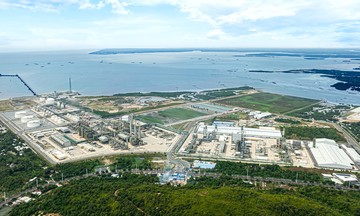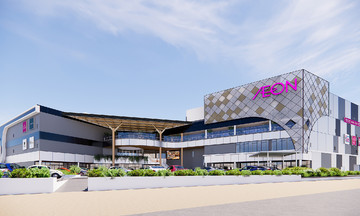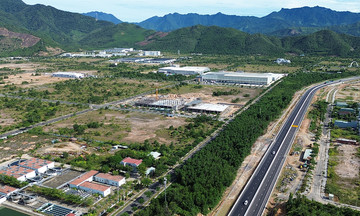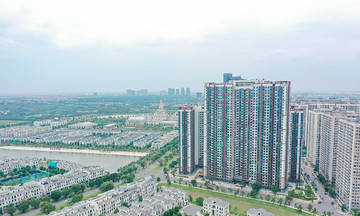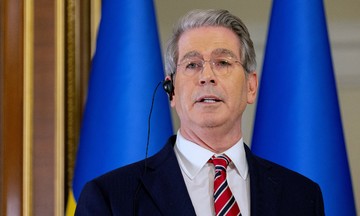This information was shared by Nguyen Hong Nguyen, Deputy Director of Ho Chi Minh City's Department of Agriculture and Rural Development, during a meeting on solid household waste management held on the afternoon of 17/7.
Currently, the city collects, transports, and processes approximately 99.3% of its generated solid household waste. Of this, about 40% is processed using technologies like incineration, composting, and recycling, while the remaining 60% is disposed of in sanitary landfills.
By 2030, the city aims to increase the rate of collection and treatment of solid household waste to 100%, with 90% being processed through advanced technologies. Two waste incineration projects are planned for Thanh An and An Thoi Dong communes (formerly Can Gio district). The People's Committee of Ho Chi Minh City has approved the policy for a 5-ton-per-day incinerator in Thanh An.
After the merger of districts, Ho Chi Minh City generates an average of about 14,000 tons of solid household waste daily. The former Ho Chi Minh City area accounts for approximately 10,500 tons, while the former Binh Duong and Ba Ria - Vung Tau areas contribute 2,400 tons and 1,100 tons, respectively.
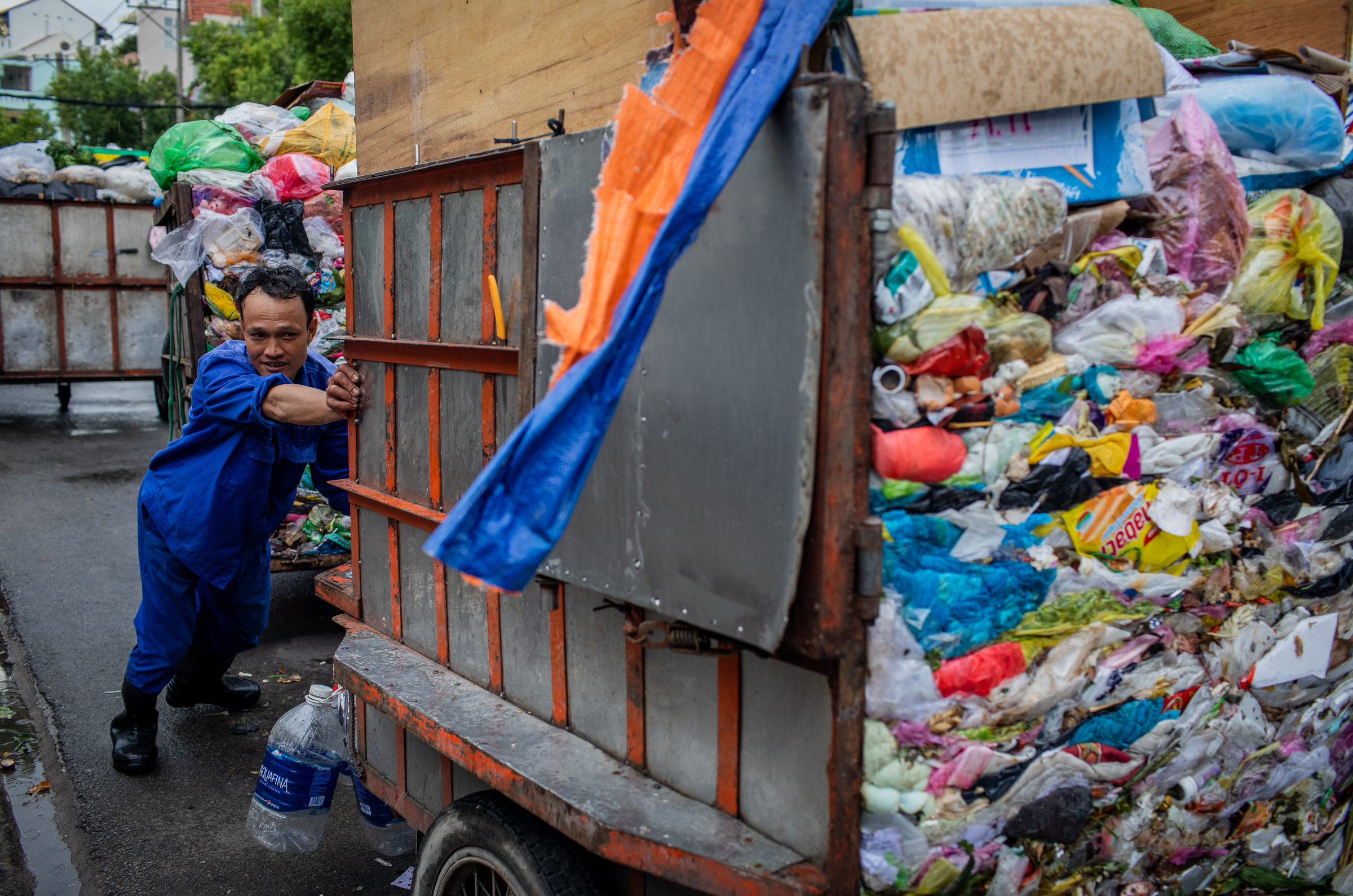 |
A privately-operated waste collection point on Hoang Hoa Tham Street, former Binh Thanh District, on 5/8/2019. Photo: Thanh Nguyen. |
A privately-operated waste collection point on Hoang Hoa Tham Street, former Binh Thanh District, on 5/8/2019. Photo: Thanh Nguyen.
The city's Department of Agriculture and Rural Development acknowledges several challenges in solid waste management. Specifically, regulations on economic and technical norms, and the use of funds for environmental sanitation, have not been fully detailed in the 2020 Law on Environmental Protection and are not consistent across the formerly separate districts.
The lack of regulations on the rate of general expenses and profit for waste collection, transportation, treatment, and public sanitation services creates difficulties in appraising and approving pricing plans. Additionally, the management models for waste collection, transportation, and treatment differ among the three areas that were merged.
Presiding over the meeting, Bui Minh Thanh, Vice Chairman of the Ho Chi Minh City People's Committee, requested detailed reports from local authorities and businesses regarding obstacles and proposed solutions. This will allow the city to develop a comprehensive waste management plan and issue regulations for consistent application across the merged areas.
Thanh emphasized the need for communes, wards, and special zones to focus on managing waste treatment areas and commissioning waste treatment units to transition from landfilling to waste-to-energy incineration. He also urged the renovation and restoration of landfills after they cease receiving waste, to reclaim land and create clean land resources for the city.
Dy Tung







